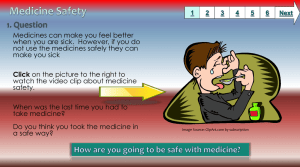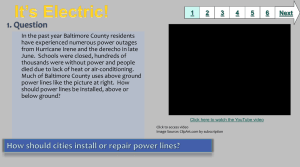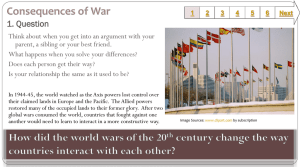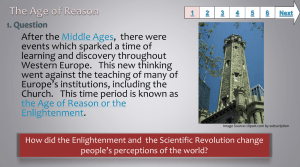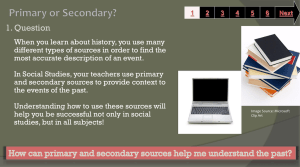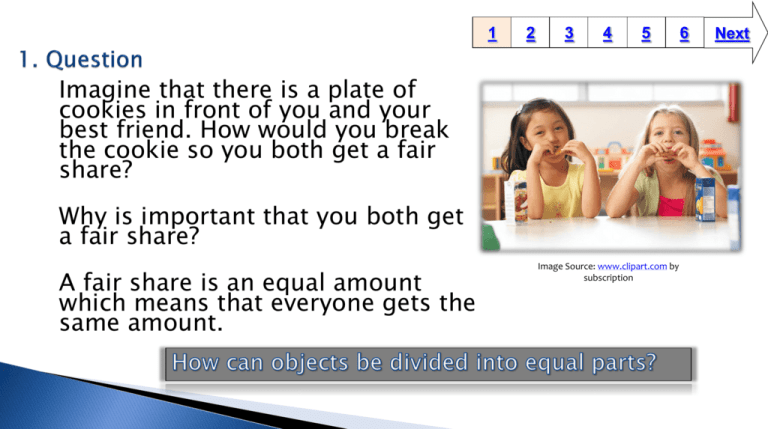
1
2
3
4
5
Imagine that there is a plate of
cookies in front of you and your
best friend. How would you break
the cookie so you both get a fair
share?
Why is important that you both get
a fair share?
A fair share is an equal amount
which means that everyone gets the
same amount.
Image Source: www.clipart.com by
subscription
6
Next
1
2
3
4
5
Here are sources that can be used to
expand your knowledge on equal parts.
Interactive Demonstrations
Education Place
Videos
You can learn about the basic parts of a
whole through this video.
*NOTE: Go to the BCPS Database page and click on BrainPOP Jr., then return to this slide
and click on the video link above.
Print
World Book Kids Online on equal parts.
Image Source: www.clipart.com by subscription
6
Next
1
2
3
4
5
To prepare for our activity look at
this interactive demonstration of
cutting a pizza into fair slices.
Now you are going to be the
pizza maker and cut the pizzas
into equal and unequal parts or
into halves and fourths.
Image Source: www.clipart.com by
subscription
6
Next
1
2
3
4
5
6
Next
Here is the rubric that your
teacher will use to grade your
activity.
The final assessment is to
participate in the Fraction Shoot
game.
1. Click on Equal and Unequal
Parts
2. Click on the halves, thirds, and
fourths.
Image Source:
http://www.sheppardsoftware.com/mathgames/earlymath/fractions_shoot.htm
1
2
3
4
5
6
Here are additional websites
that you can use to apply your
new knowledge:
◦ Pizza Fractions
◦ PBS CyberChase
◦ Golf Game
Image Source: www.clipart.com
Next
1
BCPS Curriculum
Determine whether a region has been divided into equal parts. (16.A)
Count the number of equal parts a region has been divided into. (16.B)
Common Core State Standards
Reading: 1. Read closely to determine what the text says explicitly and to
make logical inferences from it; cite specific textual evidence when writing
or speaking to support conclusions drawn from the text.
Writing: 7. Conduct short as well as more sustained research projects
based on focused questions, demonstrating understanding of the subject
under investigation.
Standards for the 21st Century Learner
1.1.6 Read, view, and listen for information presented in any format (e.g.
textual, visual, media, digital) in order to make inferences and gather
meaning.
2.1.3 Use strategies to draw conclusions from information and apply
knowledge to curricular areas, real-world situations, and further
investigations.
Maryland Technology Literacy Standards for Students
3.0: Use a variety of technologies for learning and collaboration.
2
3
4
5
6
Time Frame: 1-2 50 minute period
Differentiation:
Direct students to use comprehension tools
included in databases, such as: audio read-aloud,
labeled reading levels, and embedded dictionaries.
Learning Styles: Field Independent ,Visual, Active
Student Activity: Pick activity that is more
appropriate for your class.
Notes to the teacher:
There are some books on this topic that can be
found in library
How Many Ways Can You Cut a Pie? By Jane Belk Moncure
Give Me Half! By Bruce McMillan
Paper and pencil version of student activity: Halves
and Quarters and Equal and Unequal Parts
Students can use computer program, Shapes (see
Technology Liaison for installation), Wixie or
Kidspiration for an assessment
The timed quiz website also has worksheets that can
be printed. There are several other websites that can be
used for the assessment. Website 1 , Website 2
Last updated: July 2014
Created by Amie Schwartz , Library Media Specialist
BCPS Slam Dunk Research Model, Copyright 2013, Baltimore County Public Schools, MD, all rights reserved. The models may be used for educational, non-profit school use only.
All other uses, transmissions, and duplications are prohibited unless permission is granted expressly. This lesson is based on Jamie McKenzie’s Slam Dunk Lesson module.



